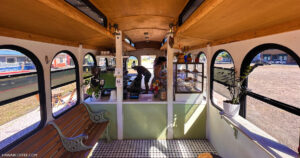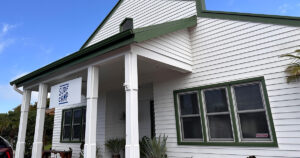Hawaii Coffee Superstars
Kona coffee often comes to mind at the mention of Hawaiian coffee. The rich, slightly acidic flavors have long captured the attention of coffee enthusiasts worldwide. However, despite Kona’s outstanding name recognition, over half of the coffee produced in the islands comes from Kauai, Maui, and Oahu. Diminutive Kauai houses the largest coffee farm in the state- spanning a gargantuan 3,100 acres. Comparatively, the 900 farms in the Kona region collectively total about 3,800 acres.
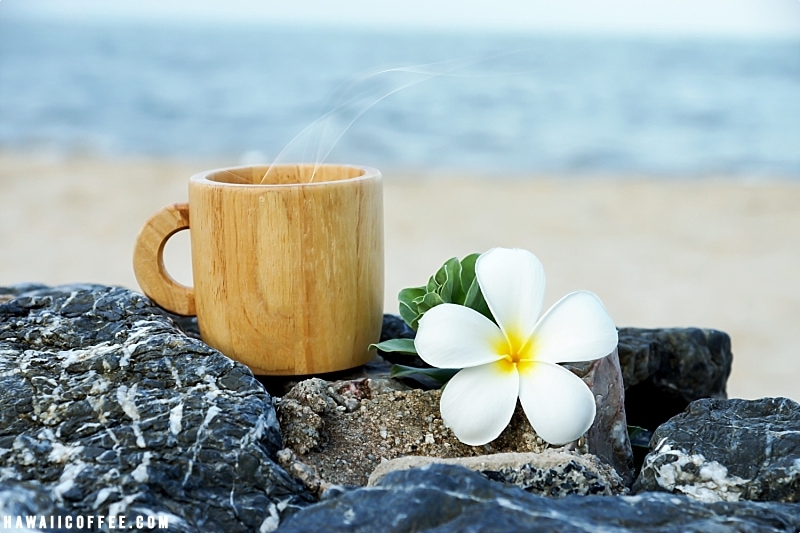
While Kona coffee will likely always be the first word in Hawaii coffee, let’s shed light on Hawaii’s lesser-known coffee superstars.
Kauaʻi Coffee Company – 3,100 Acres
Kauaʻi Coffee Co. is the largest coffee farm in the United States, let alone Hawaii, with four million coffee trees. This Garden Isle farm single-handedly produces half of the Arabica beans grown in the US- no small feat! While some of Kauaʻi Coffee Co.’s success can be attributed to the farm’s parent company- Massimo Zanetti Beverage Group, said to be the largest coffee roaster in the world- it’s the island’s perfect coffee growing conditions that allow the farm to thrive.
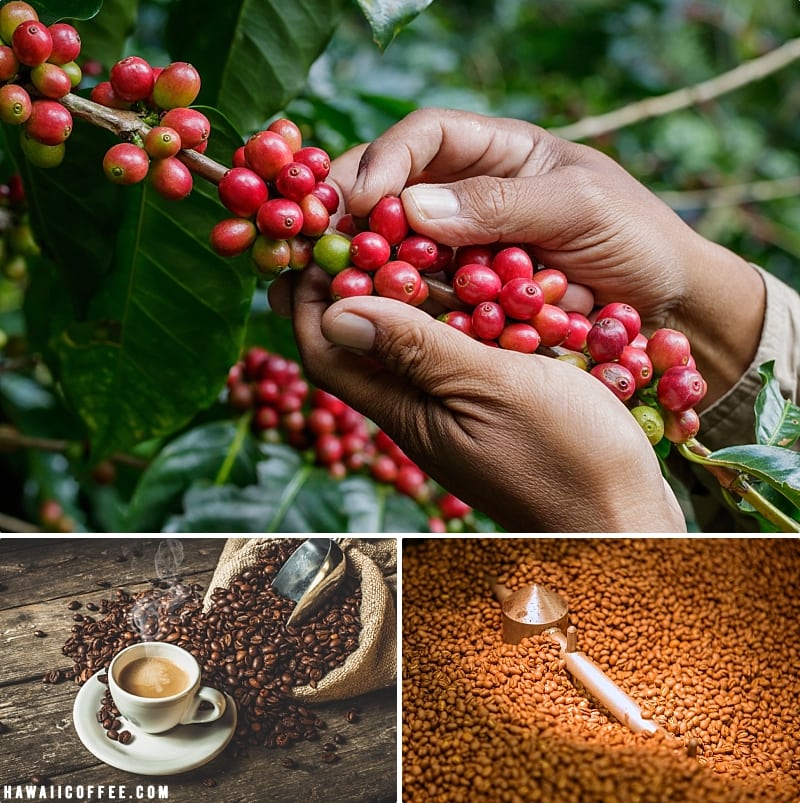
Kauaʻi Coffee Co.’s coffee is known for its well-balanced flavor and is full-bodied yet mild. Guests can sample 30 different coffee varieties and roasts at the farm’s visitor center.
MauiGrown – 400 Acres
Kaʻanapali is the heart of Maui’s tourism industry. But in the verdant hills above the white sand beaches and high-rise hotels, another sector is growing- coffee. The MauiGrown Coffee operation got its start at an unlikely time- amid the collapse of international coffee prices in 2001, which caused now-defunct Kaʻanapali Estate Coffee to shutter. The closure left behind hundreds of acres of coffee fields.
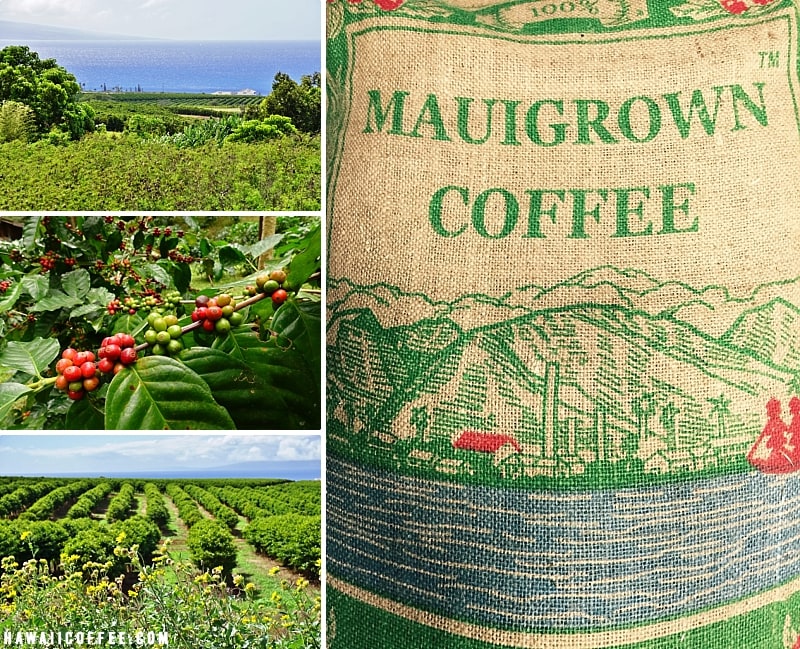
Kimo Falconer, the owner of MauiGrown Coffee, then pounced on the opportunity to start his own coffee farm and purchased the Kaʻanapali Estate Coffee land in 2003. Since then, Falconer has restored the coffee farm to span 400 acres. Today, MauiGrown Coffee harvests roughly 500,000 pounds of coffee annually and is the only commercial farm in the world to produce the Mokka variety of coffee.
Waialua Estate Coffee And Chocolate – 150 Acres
Coffee and chocolate go hand in hand. Coincidentally, the crops require similar conditions to grow- tropical climate, sufficient sun, and plenty of water. Subsequently, Hawaii is ideal for raising coffee and cacao- and is the only state in America able to do so. On Oahu’s north shore, Waialua Estate capitalizes on Hawaii’s perfect coffee and cacao growing conditions.
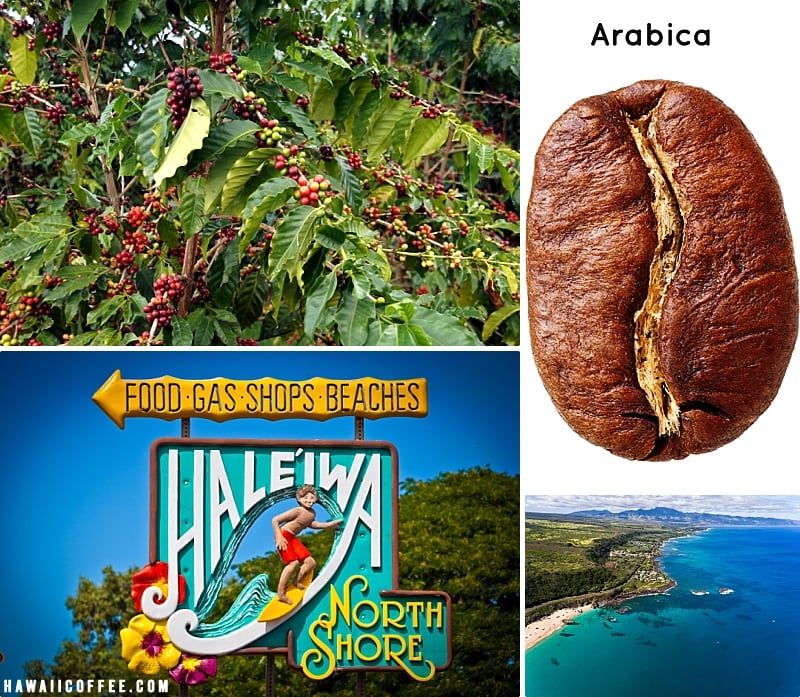
One hundred fifty acres of neatly planted rows of coffee line Kamehameha Highway, just outside of Haleiwa. Waialua Coffee grows highly-prized Typica-Arabica beans- the same variety used in Kona coffee. However, Waialua Estate’s coffee presents a noticeable flavor difference, making the coffee from this Oahu farm entirely unique.
Kaʻu Coffee Mill – 85 Acres
Big Island coffee is hyper-focused on Kona. However, the vast, rural Kaʻu district is hot on Kona’s tail. Kaʻu coffee is smoother, fuller-bodied, and richer than Kona coffee, with nutty and floral flavor profiles.
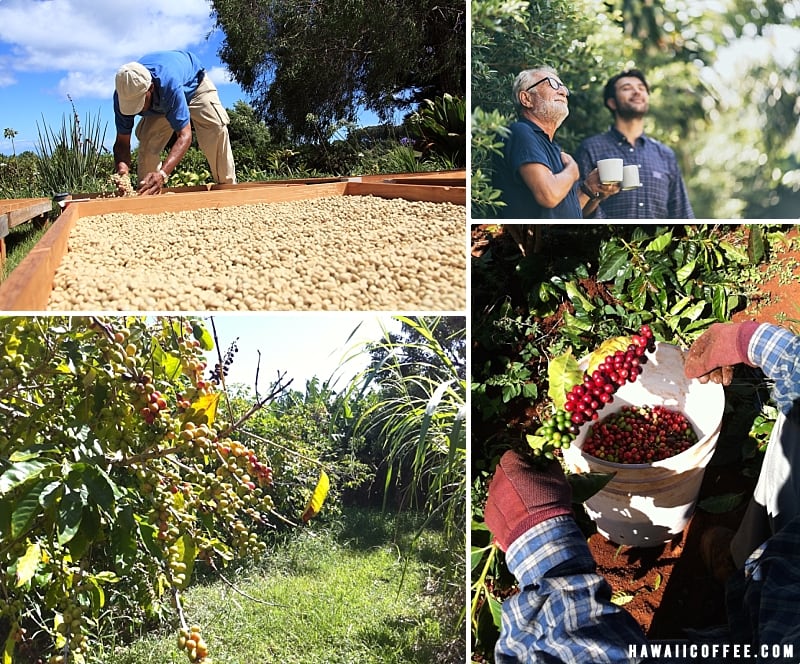
There are dozens of small, family-operated coffee farms in the Kaʻu district, and most of them convene at Kaʻu Coffee Mill for processing, roasting, and packaging services. Kaʻu Coffee Mill also produces its own coffee- 100 acres worth, making the mill the single largest farm in the Kaʻu.
Greenwell Farms – 85 Acres
Greenwell Farms is one of Kona’s oldest and largest operating coffee plantations. This 85-acre farm started when Henry Greenwell arrived in Kona from England in 1850, determined to create a new life in the verdant hills of Kealakekua. He and his wife spent the next 40 years tending to the land and growing coffee.
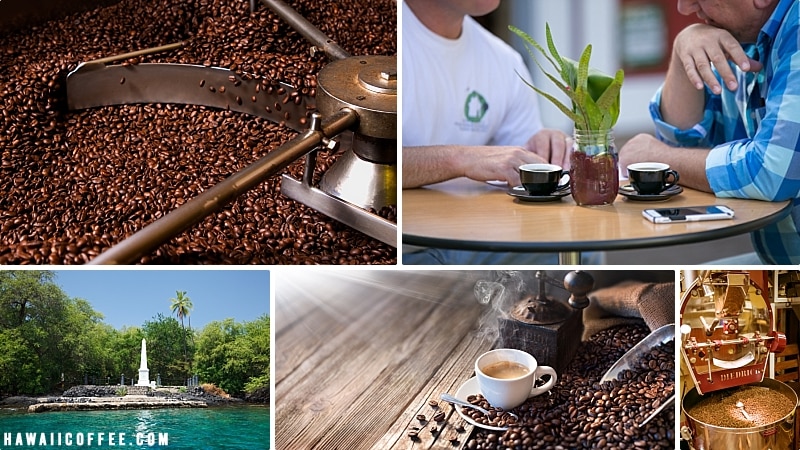
Greenwell could be partially responsible for Kona coffee’s global recognition- in 1873, Greenwell’s Kona Coffee was awarded a “Recognition Diploma” at the World’s Fair in Vienna, Austria. Generations later, Greenwell’s farm is still operational- and producing more coffee than ever. In addition to its own 85 acres, Greenwell Farms manages an additional 60 acres of coffee for different landowners.
